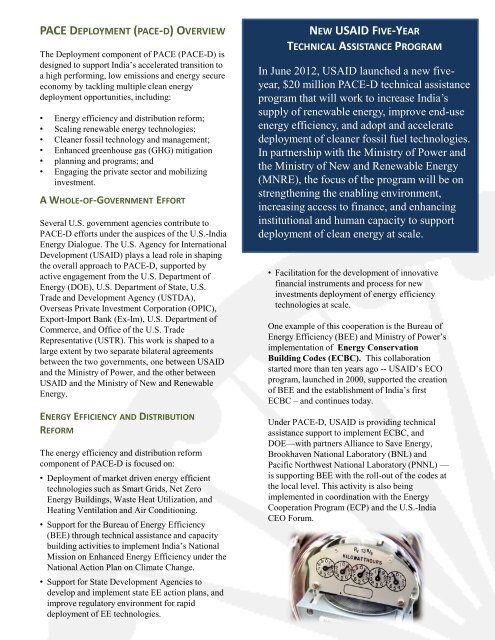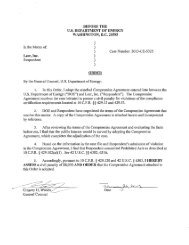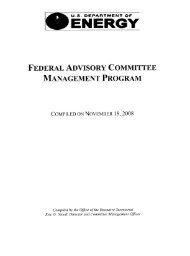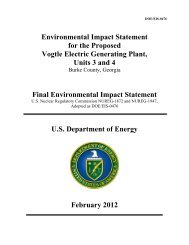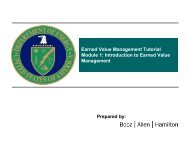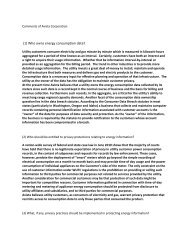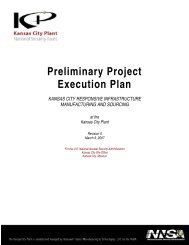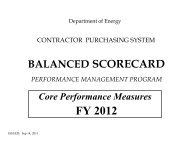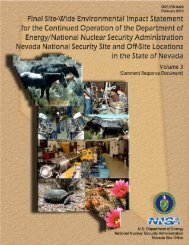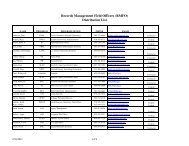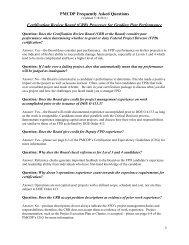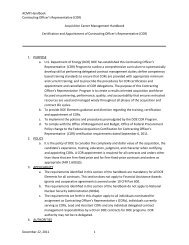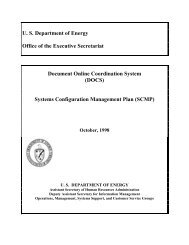U.S.-India Partnership to Advance Clean Energy: A Progress Report
U.S.-India Partnership to Advance Clean Energy: A Progress Report
U.S.-India Partnership to Advance Clean Energy: A Progress Report
You also want an ePaper? Increase the reach of your titles
YUMPU automatically turns print PDFs into web optimized ePapers that Google loves.
PACE DEPLOYMENT (PACE-D) OVERVIEWThe Deployment component of PACE (PACE-D) isdesigned <strong>to</strong> support <strong>India</strong>’s accelerated transition <strong>to</strong>a high performing, low emissions and energy secureeconomy by tackling multiple clean energydeployment opportunities, including:• <strong>Energy</strong> efficiency and distribution reform;• Scaling renewable energy technologies;• <strong>Clean</strong>er fossil technology and management;• Enhanced greenhouse gas (GHG) mitigation• planning and programs; and• Engaging the private sec<strong>to</strong>r and mobilizinginvestment.A WHOLE-OF-GOVERNMENT EFFORTSeveral U.S. government agencies contribute <strong>to</strong>PACE-D efforts under the auspices of the U.S.-<strong>India</strong><strong>Energy</strong> Dialogue. The U.S. Agency for InternationalDevelopment (USAID) plays a lead role in shapingthe overall approach <strong>to</strong> PACE-D, supported byactive engagement from the U.S. Department of<strong>Energy</strong> (DOE), U.S. Department of State, U.S.Trade and Development Agency (USTDA),Overseas Private Investment Corporation (OPIC),Export-Import Bank (Ex-Im), U.S. Department ofCommerce, and Office of the U.S. TradeRepresentative (USTR). This work is shaped <strong>to</strong> alarge extent by two separate bilateral agreementsbetween the two governments, one between USAIDand the Ministry of Power, and the other betweenUSAID and the Ministry of New and Renewable<strong>Energy</strong>.ENERGY EFFICIENCY AND DISTRIBUTIONREFORMThe energy efficiency and distribution reformcomponent of PACE-D is focused on:• Deployment of market driven energy efficienttechnologies such as Smart Grids, Net Zero<strong>Energy</strong> Buildings, Waste Heat Utilization, andHeating Ventilation and Air Conditioning.• Support for the Bureau of <strong>Energy</strong> Efficiency(BEE) through technical assistance and capacitybuilding activities <strong>to</strong> implement <strong>India</strong>’s NationalMission on Enhanced <strong>Energy</strong> Efficiency under theNational Action Plan on Climate Change.• Support for State Development Agencies <strong>to</strong>develop and implement state EE action plans, andimprove regula<strong>to</strong>ry environment for rapiddeployment of EE technologies.NEW USAID FIVE-YEARTECHNICAL ASSISTANCE PROGRAMIn June 2012, USAID launched a new fiveyear,$20 million PACE-D technical assistanceprogram that will work <strong>to</strong> increase <strong>India</strong>’ssupply of renewable energy, improve end-useenergy efficiency, and adopt and acceleratedeployment of cleaner fossil fuel technologies.In partnership with the Ministry of Power andthe Ministry of New and Renewable <strong>Energy</strong>(MNRE), the focus of the program will be onstrengthening the enabling environment,increasing access <strong>to</strong> finance, and enhancinginstitutional and human capacity <strong>to</strong> supportdeployment of clean energy at scale.• Facilitation for the development of innovativefinancial instruments and process for newinvestments deployment of energy efficiencytechnologies at scale.One example of this cooperation is the Bureau of<strong>Energy</strong> Efficiency (BEE) and Ministry of Power’simplementation of <strong>Energy</strong> ConservationBuilding Codes (ECBC). This collaborationstarted more than ten years ago -- USAID’s ECOprogram, launched in 2000, supported the creationof BEE and the establishment of <strong>India</strong>’s firstECBC – and continues <strong>to</strong>day.Under PACE-D, USAID is providing technicalassistance support <strong>to</strong> implement ECBC, andDOE—with partners Alliance <strong>to</strong> Save <strong>Energy</strong>,Brookhaven National Labora<strong>to</strong>ry (BNL) andPacific Northwest National Labora<strong>to</strong>ry (PNNL) —is supporting BEE with the roll-out of the codes atthe local level. This activity is also beingimplemented in coordination with the <strong>Energy</strong>Cooperation Program (ECP) and the U.S.-<strong>India</strong>CEO Forum.


